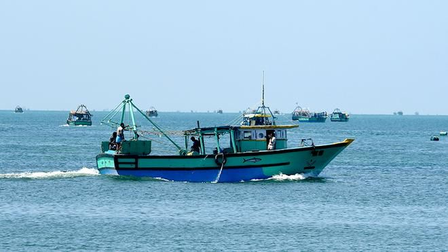

Chennai, Aug 10 (IANS) After the arrest of eight Rameswaram fishermen by the Sri Lankan Navy, the Rameswaram All Fishermen’s Association, on Sunday, announced a series of protests, culminating in a hunger strike on August 15, India’s Independence Day.
The fishermen were accused of crossing the International Maritime Boundary Line (IMBL) and were detained along with their boats — an issue that has plagued the coastal community for years, threatening livelihoods and sparking repeated diplomatic tensions.
The association, in an emergency meeting, passed a resolution demanding the immediate release of the arrested fishermen and the seized boats.
“These arrests are destroying our lives. Fishing is our only livelihood, and the constant threat from the Sri Lankan Navy has made our existence uncertain,” a representative of the association said.
Outlining their protest schedule, the association said that an indefinite strike will begin on August 11.
This will be followed by a demonstration near the Thangachimadam Valasai Bus Stand on August 13.
On August 19, fishermen plan to hold a rail blockade at 3 p.m. to press their demands.
The protests are intended to draw national attention to the continuing arrests and seizures in the Palk Bay region.
Tamil Nadu Chief Minister M.K. Stalin has also raised the matter with the Centre.
In a recent letter to Union External Affairs Minister S. Jaishankar, Chief Minister Stalin urged urgent diplomatic intervention to put an end to the repeated arrests of Tamil Nadu fishermen.
He said that on August 6, 14 fishermen from the state, along with their boats, were apprehended by the Sri Lankan Navy.
“This was the 17th such incident this year,” CM Stalin wrote, noting that 237 boats and 80 fishermen from Tamil Nadu remain in Sri Lankan custody.
He stressed that losing boats not only deprives fishermen of their only means of income but also strips them of their right to fish in traditional waters — a right the fishing community has exercised for generations.
Fishermen’s associations have long demanded a lasting bilateral solution to the dispute, including measures to prevent arrests, ensure the return of boats, and safeguard traditional fishing rights.
Until such an agreement is reached, they say, the community will continue to suffer repeated disruptions to its livelihood.
–IANS
aal/khz
